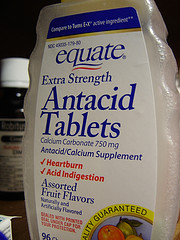Acid Reflux and Breathalyzers: A DUI Defense Gastroesophageal Reflux Disease (GERD)
Many people suffer from acid reflux but some experience this condition regularly. Gastroesophageal Reflux Disease (GERD) is a chronic digestive condition which causes the stomach to leak its contents upwards into the esophagus causing heartburn.
 GERD symptoms include regurgitation of food or sour liquid (acid reflux) into the upper portion of the esophagus. This condition can cause mouth alcohol contamination and negatively affect a breathalyzer. Quite often during an arrest a police officer won’t ask a person suffers from acid reflux and if it’s bothering them at the time of the arrest. If the police officer fails to ask these questions it presents an opportunity for the defense attorney. A good defense attorney can argue that GERD negatively influences the Breathalyzer test because alcohol liquid in the stomach regurgitated into the mouth cavity.
GERD symptoms include regurgitation of food or sour liquid (acid reflux) into the upper portion of the esophagus. This condition can cause mouth alcohol contamination and negatively affect a breathalyzer. Quite often during an arrest a police officer won’t ask a person suffers from acid reflux and if it’s bothering them at the time of the arrest. If the police officer fails to ask these questions it presents an opportunity for the defense attorney. A good defense attorney can argue that GERD negatively influences the Breathalyzer test because alcohol liquid in the stomach regurgitated into the mouth cavity.
Prosecutors won’t be able to offer a strong counter argument and this can create reasonable doubt in the eyes of a judge or jury. The severity is often unknown but the fact that a person has the condition could call into question the reliability of the Breathalyzer results. Even the prosecution presents evidence that GERD effects only a small percentage of the population a defendant’s own testimony can still create reasonable doubt. The prosecution will present evidence of the 20 minute observation period prior to a Breathalyzer but a strong GERD defense based on a previous diagnosis can overcome the prosecution’s argument. Further, if the police officer never asked about acid reflux it will only strengthen the defense’s argument. While a person has an obligation to take a breath test there is no obligation for someone to understand that acid reflux could affect the results.
If you suffer from acid reflux, it’s important you tell your DUI defense attorney about it. Your attorney must know as much about you as possible to effectively defend your interest during a DUI trial.
